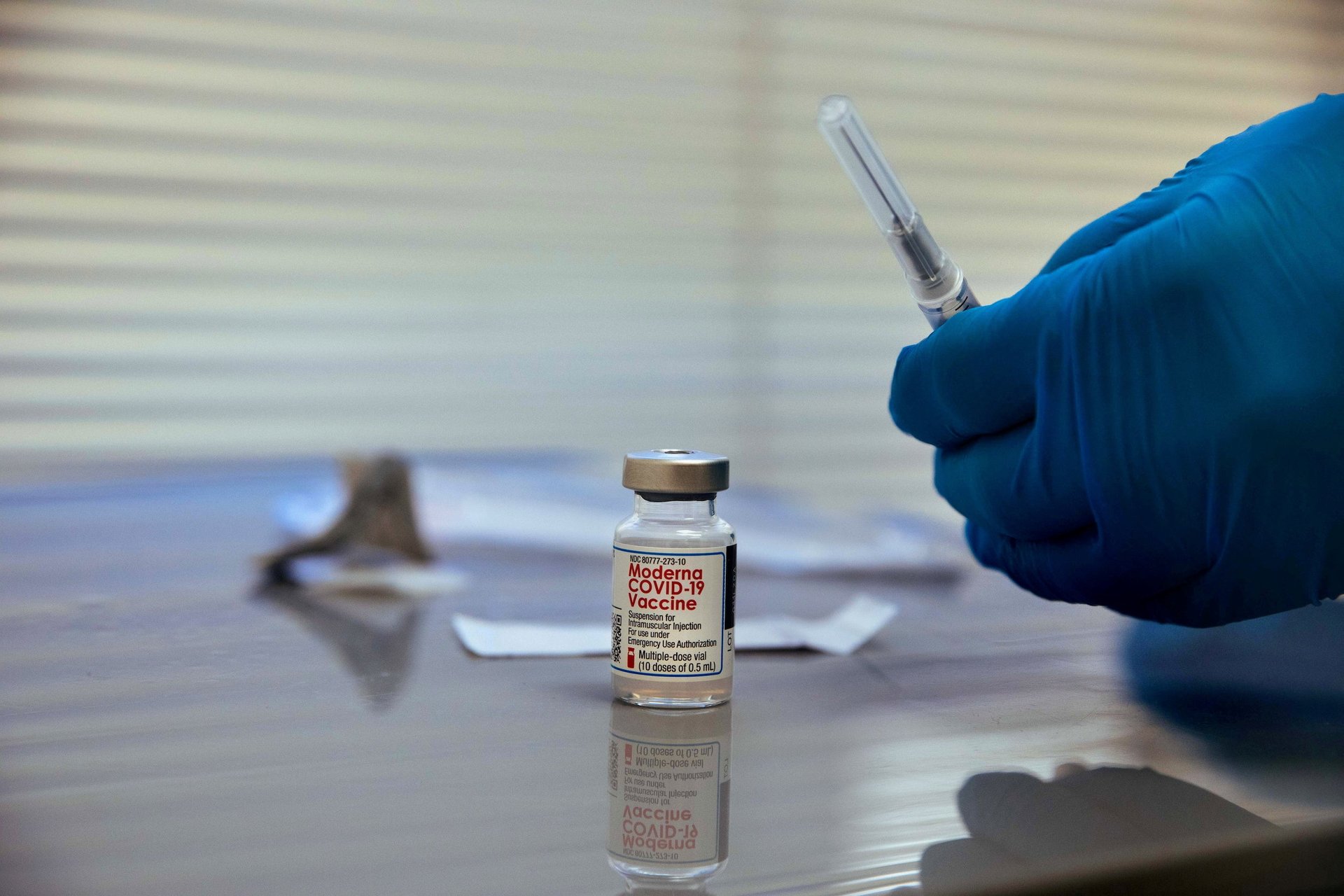Purdue Pharma dissolved, Facebook lawsuit, Anthony Hopkins NFT film
Good morning, Quartz readers!


Good morning, Quartz readers!
Was this newsletter forwarded to you? Sign up here. Forward to the friend who predicted the #1 summer jam.
Here’s what you need to know
Purdue Pharma, the maker of OxyContin, was dissolved. The Sackler family, which ran Purdue, will pay $4.5 billion over nine years to address the effects of the opioid abuse epidemic that OxyContin helped create. But the Sacklers will also avoid any further liability and remain one of the wealthiest families in the country.
Hurricane Ida could cost insurers up to $18 billion. The estimate covered vehicles, houses, and other property in Louisiana and other parts of the US. The figure may rise; a rare Flash Flood Emergency warning was issued for New York City, as the remnants of Ida flooded subway stations, airports, and roads.
Moderna is recalling 1.6 million contaminated vaccine doses in Japan. Some of the vials contained stainless steel particles. Meanwhile, France became the first large EU nation to start giving boosters to anyone over 65 and people with underlying conditions.
Google is appealing a €500 million ($592 million) French fine. The country’s antitrust watchdog faulted the US tech giant for the way it handled negotiations with news publishers about paying for content.
The Taliban is still fighting opposition militias. Clashes took place yesterday in Panjshir, the one province not yet under the militant group’s control, and Wardak and Daikundi, where there are large groups of Hazaras, a Shiite minority.
OPEC+ voted to stay the course on oil output increases. It was apparently an easy decision—deliberations lasted less than an hour.
What to watch for
Facebook has asked a San Francisco judge to toss out a lawsuit accusing the company of breaking Illinois’s privacy rules by scanning people’s faces in photos without their consent. The judge holding today’s hearing on Facebook’s request is the same judge who ordered Facebook to pay a $650 million settlement in a similar case earlier this year.
Facebook has changed its ways since this lawsuit was originally filed in 2018. It now allows users to opt out of facial recognition—thanks, in part, to lawsuits spurred by the Illinois Biometric Information Privacy Act, which lays out the strictest restrictions of any US state on face and fingerprint scanning. Pro-business Illinois lawmakers, however, are now attempting to declaw the law.
Hurricane Ida’s chain reaction
As it barreled through Louisiana this week, Hurricane Ida brought all shipping traffic through the mouth of the Mississippi River to a grinding halt, snarling supply chains that have already been strained by the pandemic (and a giant boat stuck in an important canal). Now port closures in New Orleans are pushing the system to its breaking point. Just look at agriculture:
🌾 The Mississippi River connects much of the US grain industry to the rest of the world.
🌱 China is the biggest importer of American-grown soybeans, and ports in and around New Orleans handle 61% of them.
🐽 In China, most of those soybeans go into the bellies of pigs, chickens, and other industrial livestock, which its population depends on for food.
↪️ Farmers could pay extra to reroute to Pacific Northwest ports, but agriculture isn’t known for its wide profit margins.
“I’ve got some feedback for you”
When Apple employees tried to provide some critical feedback this week in the form of a Slack channel for discussing pay equity, the company quickly shut it down. If only executives had read this How To email for Quartz members on turning critical feedback into professional gold.
To many of us, the very idea of “critical feedback,” much less “radical candor,” is enough to make us dive under our WFH tables. Even “growth mindset” or “360 review” can get the palms sweating.
Critical feedback can be a helpful tool for professional development, but it’s easy to get defensive, instead of assessing how useful that feedback is and developing a strategy for acting on it.
How To and other great emails are exclusive to Quartz members—join today to get 40% off using code QZEMAIL40.
What we’re reading
🔎 Texas citizens are now bounty hunters. A new state law provides a financial incentive to anyone who flags an illegal abortion.
💪 Didi is planning a union for workers. But it’s too soon to get excited.
🎧 Wizkid just took Afrobeats to the next level. “Essence” is being called the song of the summer.
🇲🇬 Madagascar is suffering a climate change famine. It’s an unfair plight for a country that produces 0.01% of the world’s carbon dioxide emissions.
🍔 Whither fast food dining rooms? The pandemic is hastening restaurant architecture adaptations.
Surprising discoveries
Germans exchanged €50 million ($59 million) in flood-damaged bank notes. The country’s central bank will destroy (not launder) the contaminated currency.
The largest known triceratops skeleton is about to be auctioned off. Big John is 2.62m (8 ft 7) long and weighs more than 700kg (1,500 lb).
Instead of jail time, a Nazi sympathizer will be forced to read classic British literature. Books about the Holocaust or by authors of color might have been a more appropriate sentence.
A deep sea bacteria is the basis for a new brain cancer drug. The microbes have been shown to kill tumor cells.
Anthony Hopkins stars in a feature-length movie released as an NFT. It’s about “the solution to mankind’s problems or the end of life on Earth”—perhaps also a fitting description for NFTs?
Our best wishes for a productive day. Send any news, comments, suggested reading to avoid a prison sentence, and dinosaur nicknames to [email protected]. Get the most out of Quartz by downloading our iOS app and becoming a member. Today’s Daily Brief was brought to you by Nicolás Rivero, Liz Webber, Susan Howson, and Samanth Subramanian.